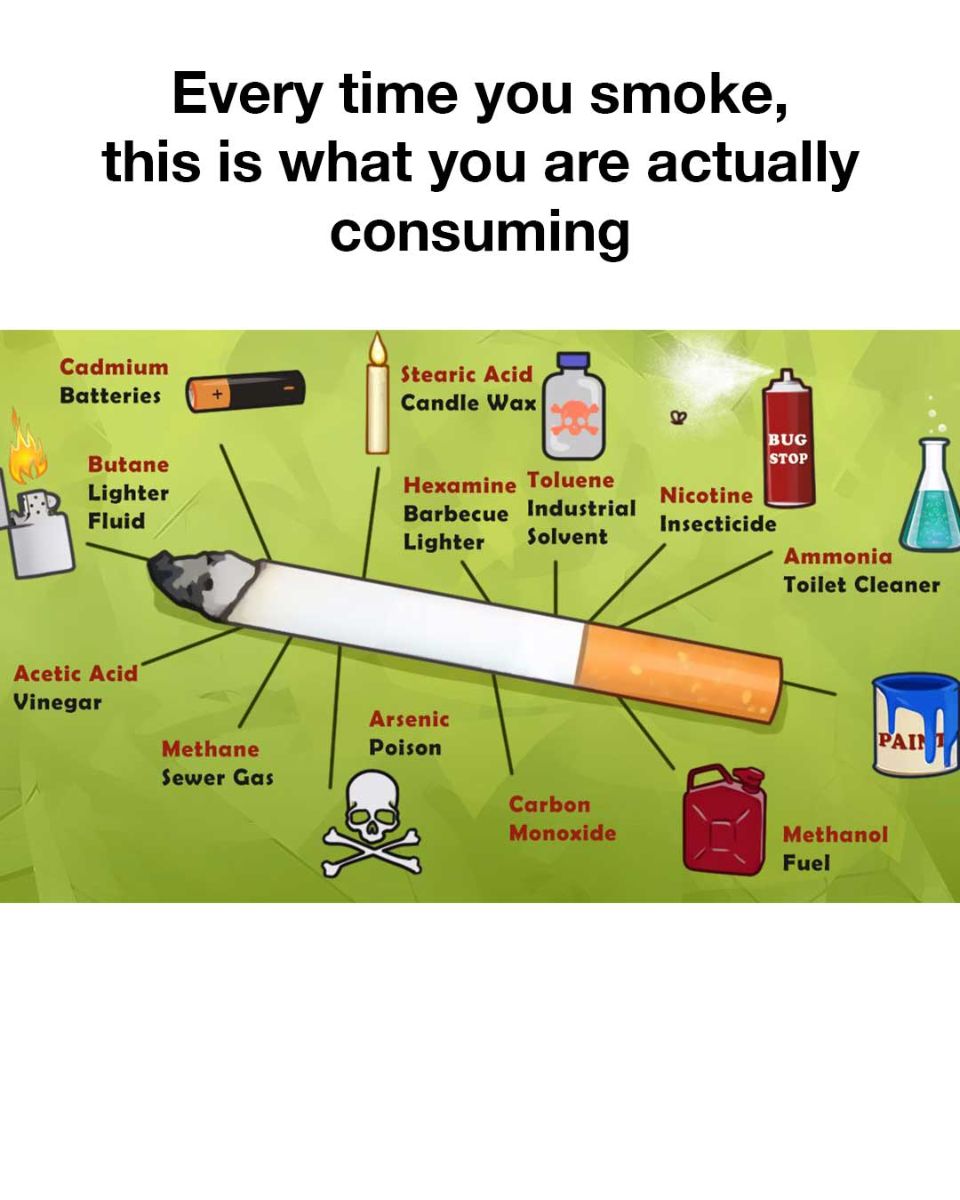Smoking is an act that has been a part of human culture for centuries. Despite its historical and social significance, the act of smoking, particularly cigarette smoking, introduces a plethora of harmful substances into the body. Beyond the well-known dangers of nicotine and tar, cigarettes contain a disturbing array of chemicals that are more commonly found in industrial and household products.
Understanding what exactly you are inhaling every time you light up a cigarette might just be the catalyst needed to reconsider the habit. Here, we delve into some of the toxic substances found in cigarettes and their usual, unsettling applications.
Cadmium: The Battery Element
Cadmium is a heavy metal that is commonly used in the manufacture of batteries. It is a toxic element that can cause severe damage to the kidneys and is known to be carcinogenic. Inhaling cadmium from cigarette smoke contributes to its accumulation in the body, posing significant long-term health risks.
Butane: Lighter Fluid
Butane is a highly flammable gas used as lighter fluid. This volatile substance is found in cigarette smoke, contributing to its toxicity. Inhaling butane can cause a range of health issues, from respiratory problems to more severe systemic effects.
Methane: Sewer Gas
Methane, a primary component of sewer gas, is another chemical found in cigarette smoke. While it is less toxic compared to other substances on this list, its presence in cigarettes adds to the cocktail of harmful gases that smokers inhale.
Arsenic: The Poison
Arsenic is well-known as a potent poison. It is used in pesticides and other industrial applications. Chronic exposure to arsenic, even in small amounts, can lead to a range of health problems including various forms of cancer, cardiovascular disease, and diabetes.
Ammonia: Toilet Cleaner
Ammonia is a common ingredient in household cleaning products, especially toilet cleaners. It is used in cigarettes to enhance nicotine absorption in the lungs, making the habit more addictive. Inhaling ammonia can irritate the respiratory system and exacerbate conditions like asthma.
Methanol: Rocket Fuel
Methanol is a type of alcohol used as a fuel in rockets and other applications. It is highly toxic when inhaled, ingested, or absorbed through the skin. Exposure to methanol can lead to severe metabolic acidosis, neurological damage, and even death.
Hexamine: Barbecue Lighters
Hexamine is a chemical used in barbecue lighters and camping fuels. It releases toxic fumes when burned. Inhaling hexamine through cigarette smoke can cause respiratory and systemic toxicity.
Stearic Acid: Candle Wax
Stearic acid is a fatty acid used in the production of candles and other wax products. While it is less toxic than some of the other substances listed, inhaling it can still contribute to the overall harmful effects of smoking.
Acetic Acid: Vinegar’s Component
Acetic acid, known for giving vinegar its characteristic smell and taste, is also present in cigarette smoke. Inhalation of acetic acid can irritate the eyes, nose, and throat, and prolonged exposure may cause respiratory problems.
Toluene: Industrial Solvent
Toluene is used as an industrial solvent in paint thinners, nail polish removers, and adhesives. Inhaling toluene can cause dizziness, headaches, and neurological damage, adding another layer of harm from cigarette smoke.
Nicotine: The Addictive Agent
Nicotine is the primary addictive substance in cigarettes. It stimulates the release of dopamine, creating a sense of pleasure and reward. However, nicotine addiction leads to increased tolerance and dependence, making it difficult to quit. Nicotine also raises blood pressure and heart rate, contributing to cardiovascular diseases.
Carbonate: Various Forms
Carbonates, such as calcium carbonate, are used in various industries, including construction and manufacturing. In cigarette smoke, carbonates contribute to respiratory irritation and can exacerbate pre-existing lung conditions.
The Combined Effect
The combination of these chemicals makes cigarette smoke a lethal cocktail. Each substance contributes to a range of health issues, from respiratory problems and cardiovascular disease to various forms of cancer and systemic toxicity. Chronic inhalation of these chemicals significantly increases the risk of developing severe health conditions and reduces overall life expectancy.
The Takeaway
Understanding the full spectrum of harmful substances in cigarettes underscores the gravity of smoking’s impact on health. Cigarettes are not just a source of nicotine and tar; they are a delivery system for a wide range of industrial and household chemicals. This knowledge can serve as a powerful deterrent against smoking and a compelling reason for smokers to seek help in quitting.

